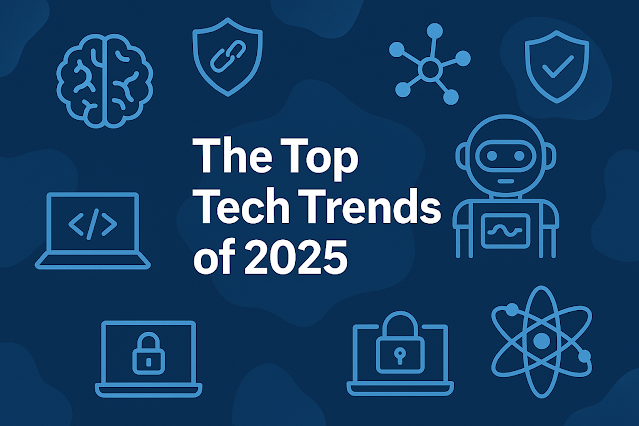In the rapidly evolving landscape of 2025, technological advancements are reshaping industries and daily life. From groundbreaking developments in artificial intelligence (AI) to significant strides in quantum computing, these innovations are setting the stage for a transformative future.
Agentic AI: The Rise of Autonomous Systems
Imagine a world where AI systems not only respond to commands but also anticipate needs and act independently. This is the promise of Agentic AI, a trend highlighted by Gartner as a top strategic technology for 2025. These autonomous agents are designed to perform tasks with minimal human intervention, revolutionizing sectors like customer service, healthcare, and finance. For instance, Bank of America is investing $4 billion in AI and new tech initiatives, reflecting the growing reliance on intelligent systems in the financial sector.
Quantum Computing: Unlocking New Frontiers
Quantum computing is transitioning from theoretical research to practical applications. JPMorgan Chase has made significant strides by developing an algorithm for certified random numbers, a crucial component for cryptographic security. This achievement, tested on a Quantinuum quantum computer, underscores the potential of quantum technologies in enhancing cybersecurity and complex problem-solving.
Spatial Computing: Merging Digital and Physical Realities
The integration of augmented reality (AR) and virtual reality (VR) is giving rise to spatial computing, creating immersive experiences that blend digital content with the physical world. This technology is being adopted across various industries, from gaming and entertainment to education and training, offering users unprecedented interactive experiences.
Post-Quantum Cryptography: Securing the Future
With the advent of powerful quantum computers, traditional encryption methods are at risk. Post-quantum cryptography aims to develop security protocols resistant to quantum attacks, ensuring data remains protected in the quantum era. Organizations are proactively exploring these cryptographic solutions to safeguard sensitive information.
AI Governance Platforms: Ensuring Ethical AI Deployment
As AI becomes more pervasive, the need for robust governance frameworks is paramount. AI governance platforms are emerging to oversee the ethical deployment of AI systems, addressing concerns related to bias, transparency, and accountability. These platforms play a crucial role in building public trust and ensuring compliance with regulatory standards.
Ambient Invisible Intelligence: Seamless Integration into Daily Life
Technology is becoming more unobtrusive, with ambient invisible intelligence integrating seamlessly into everyday environments. Smart homes equipped with sensors and IoT devices can anticipate and respond to residents' needs without explicit commands, enhancing convenience and efficiency.
Polyfunctional Robots: Versatile Assistants
Robotics is advancing towards polyfunctional designs, enabling a single robot to perform multiple tasks across different domains. These versatile robots are being deployed in manufacturing, healthcare, and domestic settings, showcasing adaptability and efficiency.
Disinformation Security: Combating Misinformation
In an era where information spreads rapidly, disinformation security has become critical. Technologies are being developed to detect and mitigate the impact of false information, safeguarding public discourse and trust.
Energy-Efficient Computing: Sustainable Tech Solutions
The tech industry is prioritizing sustainability by developing energy-efficient computing solutions. Innovations in hardware and software aim to reduce energy consumption, minimizing the environmental footprint of data centers and personal devices.
Neurological Enhancement: Bridging Humans and Machines
Advancements in neuroscience are leading to technologies that enhance cognitive functions. Brain-computer interfaces (BCIs) are being explored for applications ranging from medical treatments to augmenting human capabilities, opening new frontiers in human-machine interaction.
These technological trends are not isolated; they intertwine to create a complex tapestry of innovation. As we navigate this landscape, staying informed and adaptable is essential to harness the full potential of these advancements.
